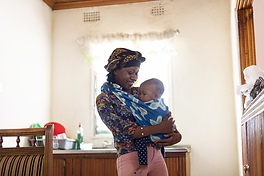January 29, 2025 | News | Latest Publications
Winter 2024/25
Find out what new publications have been released in Winter 2024/2025.
All publications of MPIDR
Homecoming After Brexit: Evidence on Academic Migration from Bibliometric Data
Paper published December 1, 2024
Study assesses the initial effects of the 2016 Brexit referendum on the mobility of researchers to and from the UK

© istockphoto.com/egal
The team of researchers leverages bibliometric data from millions of Scopus publications to infer changes in the countries of residence of published researchers by the changes in their institutional affiliations over time. The team focuses on a selected sample of active and internationally mobile researchers whose movements are traceable by their publications for every year between 2013 and 2019 and measures the changes in their migration patterns.
Although the researchers do not observe a brain drain following the Brexit referendum, they find evidence that scholars’ mobility patterns changed. Among the active and internationally mobile researchers in the sample, their probability of leaving the UK increased by approximately 86 percent if their academic origin (country of first publication) was an EU country. For scholars with a UK academic origin, their post-Brexit referendum probability of leaving the UK decreased by approximately 14 percent, and their probability of moving (back) to the UK increased by roughly 65 percent. The analysis points to a compositional change in the academic origins of the researchers entering and leaving the UK as one of the first consequences of the Brexit referendum on the UK and EU academic workforce.
Original Publication
Sanlitürk, E., Aref, S., Zagheni, E., Billari, F. C.: Homecoming After Brexit: Evidence on Academic Migration from Bibliometric Data. Demography (2024). DOI: doi.org/10.1215/00703370-11679804
Keywords
Bibliographic Data, Migration, Brexit, Academics
Rethinking Fertility Trends in Developed Countries
Paper published December 1, 2024
Study examines the link between human development and fertility

© istockphoto.com / Firn
Birth rates are declining in developed countries around the world, a trend often linked with economic and human progress. A study led by Henrik-Alexander Schubert of the MPIDR reveals that fertility rates can actually increase at high levels of human development, a pattern known as the "J-shape." However, this relationship appears to have shifted after 2010, possibly influenced by the 2007/08 economic recession and changing societal values.
Read all
Original Publication
Henrik-Alexander Schubert; Christian Dudel; Marina Kolobova; Mikko Myrskylä: Revisiting the J-Shape: Human Development and Fertility in the United States in Demography (2024). DOI: 10.1215/00703370-11680156
Keywords
Fertility, Fertility decline, Human development, Subnational research
Education Level Predicts Childbearing Trends in Same-sex Partnerships
Paper published December 1, 2024
Study reveals increasing fertility among female couples in Finland

© istockphoto.com / bernardbodo
A new study by the University of Helsinki and the Max Planck Institute for Demographic Research (MPIDR) has examined the fertility trends of same-sex female couples in Finland. The data shows a significant increase in the likelihood of these couples having a child within five years of registering their partnership, rising from 20% to 45% for partnerships registered between 2002 and 2016. This trend was particularly pronounced among couples with a higher level of education, while the probability decreased among couples with a lower level of education. Despite supportive Finnish legislation, large disparities in access to parenthood persist, highlighting the need to eliminate remaining barriers to childbearing, particularly in the context of falling fertility rates.
Read all
Original Publication
Maria Ponkilainen, Elina Einiö, Marjut Pietiläinen, Mikko Myrskylä: Educational Differences in Fertility Among Female Same-Sex Couples in Demography (2024), DOI: 10.1215/00703370-11687583
Keywords
Same-sex couples, Registered partnership, Family formation, Childbearing, Educational level
Women´s Education Influences Fertility Rates in Sub-Saharan Africa
Paper published November 4, 2024

© istockphoto.com / PixelCatchers
New research shows a strong correlation between higher levels of female education and lower fertility rates in sub-Saharan Africa. A study by the Max Planck Institute for Demographic Research (MPIDR) and partners finds that educated women are leading the shift towards smaller family sizes, even influencing the decisions of less educated women around them. The study's innovative forecasting model based on education levels provides policymakers with better tools to understand how women's education can shape future population trends and promote sustainable development.
Read the press release here.
Original Publication
Adhikari, S., Kebede, E., Lutz, W.: Forecasting Africa's Fertility Decline by Female Education Groups in PNAS (2024); DOI: 10.1073/pnas.2320247121
Keywords
Forecasting, Cohort Fertility, Africa, Female Education, Skills
Family as a Wealth Factor
Paper published October 19, 2024
Study reveals how generational change and family events are associated with a person's wealth

© istockphoto.com / Drazen Zigic
A new study conducted by the Max Planck Institute for Demographic Research (MPIDR), the University of Cologne, GESIS and the Norwegian Institute of Public Health explores how an individual’s financial wealth changes in relation to generational transitions within the family. The results indicate that those who become parents and grandparents later in life, and, particularly if they experience the loss of their parents later, tend to accumulate the most wealth. In contrast, families spanning four generations experience the smallest increase in wealth. A person's financial wealth is deeply interconnected with intergenerational family transitions, such as the birth of grandchildren or the death of parents, and is tied to the family structure as a whole.
Find the press release here.
Original Publication
Bettina Hünteler, Theresa Nutz, Jonathan Wörn: The relationship of intergenerational family transitions and wealth in Norway: A life course perspective in Oxford University Press (2024). DOI: 10.1093/sf/soae151
Keywords
Norway, family demography, inequality, population registers, wealth
Review highlights gender differences in the migration process
Paper published October 10, 2024
A look at gender in the migration process

© iStockphoto.com / LenLis
Researchers from the Max Planck Institute for Demographic Research (MPIDR) and the Netherlands Interdisciplinary Demographic Institute (NIDI) have recently published a study collecting and synthesizing findings from 170 studies that analyse gender differences in the migration process based on quantitative research and various migration data sources. The study shows that women are less likely than men to achieve their migration goals. Furthermore, the research findings cast a new light on the common narrative of the 'feminisation of migration' and suggest that female migrants face double discrimination in the labour market. They are discriminated against because they are women and because of their migrant status. The study highlights that most research to date has focused on the Global North, and that migration patterns to and within the Global South have not been sufficiently explored. The researchers stress the importance of taking gender differences in migration into account when making demographic projections.
Author Athina Anastasiadou of the MPIDR explains: “The most important contribution of our work is to shed light on research that has already attempted to understand the relationship between gender and migration. At the same time, we aim to make the case for better data collection by gender and also to encourage demographers to rethink their concept of 'gender' when studying migration as a component of demographic change that is determined not by biological characteristics but by societal norms and roles.”
Original Publication
Athina Anastasiadou, Jisu Kim, Ebru Sanlitürk, Helga A. G. de Valk, Emilio Zagheni: Gender Differences in the Migration Process: A Narrative Literature Review in Population and Development Review (2024), DOI: 10.1111/padr.12677
Keywords
migration, gender, sex, literature review